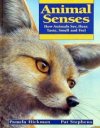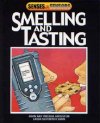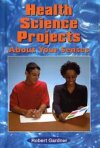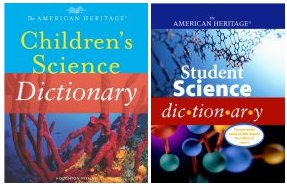A Sense of Danger Additional Information
Share this:
- Share via email (Opens in new window) Email
- Click to share on Facebook (Opens in new window) Facebook
- Click to share on X (Opens in new window) X
- Click to share on Pinterest (Opens in new window) Pinterest
- Click to share on Reddit (Opens in new window) Reddit
- Share to Google Classroom (Opens in new window) Google Classroom
- Click to print (Opens in new window) Print
Ramsayer, Kate. 2004. Infrasonic symphony. Science News 165(Jan. 10):26-27. Available at http://www.sciencenews.org/articles/20040110/bob9.asp.
Did Animals Sense Tsunami was Coming?
news.nationalgeographic.com/news/2005/01/0104_050104_tsunami_animals.html
National Geographic
Basic Instinct: Animals Sense Danger
timesofindia.indiatimes.com/articleshow/984845.cms
Times of India
Can Animals Sense Earthquakes?
news.nationalgeographic.com/news/2003/11/1111_031111_earthquakeanimals.html
National Geographic
Can Animals Sense Natural Disasters?
biology.about.com/od/animalbehavior/a/aa123104a.htm
About.com
Books recommended by SearchIt!Science:
 |
Animal Senses: How Animals See, Hear, Taste, Smell and Feel— Pamela M. Hickman
Published by Kids Can Press, 1998.
In the middle of the night we might have a tough time trying to find our way around without bumping into everything. So, how come a skunk doesn’t have that same problem? If you have ever wondered what it would be like to be a rabbit, a snake, or even a bat, now is your chance to put yourself to the test. This book not only tells you how the world looks, feels, and sounds different for animals but also gives you activities to actually find out. You’ll be able to experience the vision of a chameleon, the hearing of a dog, and much more. |
 |
Smelling and Tasting— Alvin Silverstein, Virginia Silverstein, Laura Silverstein Nunn
Published by Twenty-First Century Books/Millbrook Press, 2002.
Did you know that the sense of smell and taste are often linked to each other? Whether we smell flowers or spoiled milk, we are experiencing an important part of the “big picture” of the world around us. If we pay attention to the world of smell, we can experience a world we might not realize exists! Many animals have a stronger sense of smell than humans do. Our ability to taste is on our tongue. We experience pleasant familiar smells of our family and the embarrassing body odors that might be a sign of illness. Scientists have been working on developing a device that can detect illness by “smelling” and “tasting.” |
 |
Health Science Projects About Your Senses— Robert Gardner
Published by Enslow Publishers, 2001.
How does your eye work to form the images that you “see”? Create a model eardrum to learn about how you “hear.” How do taste and smell work together to help you recognize your food? How does your body detect heat and cold? Explore different aspects of the senses and design activities that help you to think about what makes a good science fair project. Conduct experiments to help you examine the different senses—vision (two chapters); hearing; taste and smell (combined into one chapter); and touch. Each experiment includes a materials list and illustrations to help you conduct the experiments. |
Power Words
hertz A unit used to measure the frequency of vibrations and waves. One hertz is equal to one cycle per second. Radio waves are usually measured in megahertz, or millions of hertz.
spectrum 1. An arrangement of all electromagnetic radiation according to its frequencies and wavelengths. Radiation with low frequencies and long wavelengths is at one end of the spectrum, and radiation with high frequencies and short wavelengths is at the other end. The whole spectrum ranges from radio waves to gamma rays, with visible light in the middle. 2. A band of colors that is seen when white light is broken up according to its different wavelengths. When white light passes through a prism, it produces a spectrum. A rainbow is also a spectrum.
Copyright © 2002, 2003 Houghton-Mifflin Company. All rights reserved. Used with permission.
